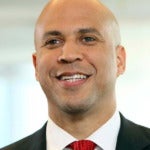Future of Wealth Discussion Series-Seeding Startup Capital for Life
How would America be different if every 18-year-old had tens of thousands of dollars in life “startup capital”?
Research has shown that to succeed in the US economy, people need to enter adulthood with tens of thousands of dollars to invest in themselves and their future, what we call “startup capital for life.” Aspen FSP’s work on Early Wealth Building Accounts has put “startup capital for life” on our short list of the eight most effective, most promising, and in some cases most practical path forward for changing the future of wealth in America, as outlined in our new report, The New Wealth Agenda.
During this event, leaders from the investment industry, the baby bonds and children’s savings accounts field, and government shared new findings from their research, discussed how to leverage momentum in the field and thought big about what this wealth-building solution would mean for low- and moderate-income households, how to make it happen, and how it would change the future of wealth in America.
Speakers

U.S. Senator Cory Booker
Cory Booker believes that the American dream isn’t real for anyone unless it’s within reach of everyone. Booker has dedicated his life to fighting for those who have been left out, left behind, or left without a voice. Booker grew up in northern New Jersey and received his undergraduate degree from Stanford University. At Stanford, Booker played varsity football, volunteered for the campus peer counseling center, and wrote for the student newspaper. He was awarded a Rhodes Scholarship and went on to study at the University of Oxford, and then Yale Law School, where he graduated in 1997. After graduating law school, Booker moved to Newark and started a nonprofit organization to provide legal services for low-income families, helping tenants take on slumlords. In 1998, Booker moved into the Brick Towers housing project in Newark, where he lived until its demolition in 2006. Booker still lives in Newark’s Central Ward today, where the median household income is less than $15,000. At 29, Booker was elected to the Newark City Council, where he challenged the city’s entrenched political machine and fought to improve living conditions for city residents, increase public safety, and reduce crime. Starting in 2006, Booker served as Newark’s mayor for more than seven years. During his tenure, the city entered its largest period of economic growth since the 1960s. In addition, overall crime declined and the quality of life for residents improved due to initiatives such as more affordable housing, new green spaces and parks, increased educational opportunities, and more efficient city services. In October 2013, Booker won a special election to represent New Jersey in the United States Senate. In November 2014, Senator Booker was re-elected to a full six-year term. As New Jersey’s junior Senator, Cory Booker has brought an innovative and consensus-building approach to tackling some of the most difficult problems facing New Jersey and our country. He has emerged as a national leader in the effort to fix our broken criminal justice system and end mass incarceration, helping craft the most sweeping set of criminal justice reforms in a generation, the First Step Act, which became law in December 2018. Booker has also worked to reform America’s broken food system, address our nation’s nutrition crisis, and end food insecurity. Booker sits on the Judiciary Committee, the Foreign Relations Committee, the Committee on Agriculture, Nutrition, and Forestry, and the Small Business Committee.

U.S. Senator Bob Casey
U.S. Senator Bob Casey fights every day for Pennsylvania families. He is a strong advocate for policies that improve the health care and early learning of children and policies that will raise wages for the middle class. Senator Casey serves on four committees including the Senate Finance Committee and Senate HELP Committee. He is also the highest ranking Democrat on the Special Committee on Aging, where his agenda is focused on policies that support seniors and individuals with disabilities. Senator Casey and his wife Terese have four daughters and live in Scranton.

Fiona Greig, Global Head of Investor Research and Policy, Vanguard
Fiona Greig, Ph.D., is global head of investor research and policy in Vanguard’s Investment Strategy Group, where she leads Vanguard’s global retirement and investor behavior research efforts. She is a leading expert in household finance and the use of financial data to drive insights for both policymakers and business leaders. Before joining Vanguard in 2022, Fiona was co-president and founding research director of the JPMorgan Chase Institute for more than seven years. During her tenure, she authored more than 40 papers covering a range of household finance topics, including income and spending trends, student loan and housing debt, the gig economy, and the impacts of fiscal relief policies, all with an underlying focus on low- and moderate-income families as well as racial and gender disparities. Earlier in her career, she was deputy budget director for the City of Philadelphia, a consultant at McKinsey & Company for public and social sector clients, and a consultant at the Washington DC Economic Partnership. She has also been an adjunct professor at Harvard Kennedy School, the University of Pennsylvania, and Georgetown University. Fiona earned a B.A. in international relations from Stanford University and a Ph.D. in public policy from Harvard Kennedy School.

Trina Shanks, Harold R Johnson Collegiate Professor, University of Michigan
Trina Shanks is currently Harold R Johnson Collegiate Professor and Director of Community Engagement at the University of Michigan School of Social Work as well as Founding Director of the Center for Equitable Family & Community Well-Being.
She has a BSBA, MSW and Ph.D. from Washington University and a Masters in Comparative Social Research from the University of Oxford as a Rhodes Scholar. Her research interests include the impact of poverty and wealth on child well-being; asset-building policy and practice across the life cycle; and community and economic development. Trina Shanks has been active in Detroit, conducting multiple evaluations of its summer youth employment program—Grow Detroit’s Young Talent, and convening an employment equity learning and action collaborative. Dr. Shanks is currently a AASWSW (American Academy of Social Work & Social Welfare) fellow and a national network co-lead for the Social Work Grand Challenge: Reversing Extreme Economic Inequality.

Hope Wollensack, Executive Director, Georgia Resilience and Opportunity Fund
Hope Wollensack is the founder and Executive Director of the Georgia Resilience & Opportunity (GRO) Fund, leading the In Her Hands’ guaranteed income program serving 650 Black women across Georgia and builds bold solutions to eliminate poverty and close the racial wealth gap. Hope’s career is dedicated to advancing racial and economic justice. She began her career as an organizer, teacher, and assistant principal and has experience in electoral politics. Her work is rooted in her upbringing in New Haven, CT. Hope earned her Master of Public Affairs from Princeton’s School of International and Public Affairs and a Bachelor of Arts degree from Tufts University, where she helped found the Africana Studies program.
 Ida Rademacher, Vice President, Aspen Institute and Co-Executive Director, Aspen Institute Financial Security Program
Ida Rademacher, Vice President, Aspen Institute and Co-Executive Director, Aspen Institute Financial Security Program
Ida is Vice President at the Aspen Institute and Co- Executive Director of the Aspen Institute Financial Security Program, a leading national voice on Americans’ financial health. Ida combines her expertise in economic inclusion research and policy with her reputation as a collaborative and creative thinker to raise up a national conversation and solutions set around financial inequality and financial instability. Ida and her team are building a cross-disciplinary community of leaders and change agents who, together, are deeply probing critical financial challenges facing US households and shaping market and policy innovations that can improve the financial security and wellbeing of all Americans.
Prior to leading the Aspen Institute Financial Security Program, Ida was Chief Program Officer at Prosperity Now (formerly CFED), where she created the multi-institutional team that led the CFPB’s Consumer Financial Well-Being Metrics Project, and also led the creation of Upside Down, a program examining ways the US income tax code generates disparate wealth-building opportunities and contributes to growing levels of wealth inequality. Earlier in her career Ida led research and evaluation projects at the Aspen Economic Opportunities Program and the Center for Behavioral and Evaluation Research at the Academy for Educational Development.
 Joanna Smith Ramani, Co-Executive Director, Aspen Institute Financial Security Program
Joanna Smith Ramani, Co-Executive Director, Aspen Institute Financial Security Program
Joanna Smith Ramani is Co-Executive Director of the Aspen Institute Financial Security Program, a leading national voice on Americans’ financial security. Working with the team, she is building a diverse cross-sector community of leaders (Joanna calls her “quirky Thanksgiving table”) who, together, are using their shared accumulated wisdom and humanity to deeply investigate and solve the most critical financial challenges facing U.S. households.
Joanna has more than 20 years of experience across community, personal finance, and asset development. Prior to joining Aspen FSP as the Director of its Expanding Prosperity Impact Collaborative (EPIC), Joanna served as Senior Innovation Director at Commonwealth.
Joanna holds a Master of Public Policy degree from the Harvard Kennedy School and a B.A. in Urban Studies from Barnard College, Columbia University. She serves on the Board of the CASH Campaign of Maryland and A Wider Circle, and was selected to the 2017-2018 class of Leadership Montgomery.
Explore the Future of Wealth Discussion Series